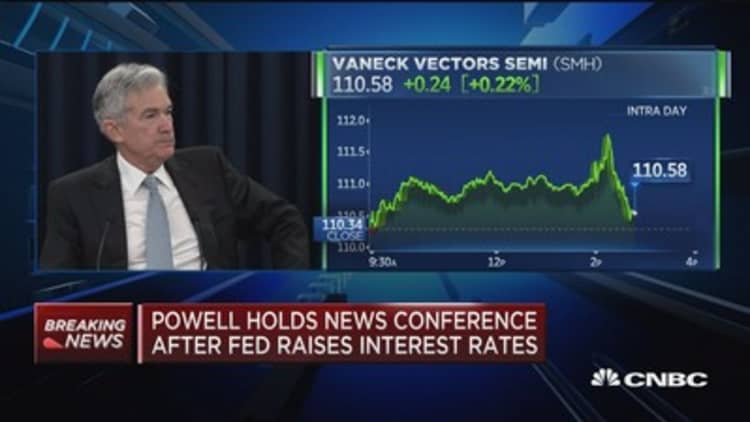
The threat of a global trade war, which has caught the attention of investors in a big way, is also a concern for the Federal Reserve.
In his first news conference as central bank chairman, Jerome Powell said the battle over tariffs has not caused Fed officials to change their economic outlook yet, but future expectations will depend on how the situation unfolds.
"A number of participants in the [Federal Open Market Committee] did bring up the issue of tariffs," Powell said. "If I could summarize what came out of it was, first, there's no thought that changes in trade policy should have any effect on the current outlook."
However, "a number of participants reported that about their conversations with business leaders around the country and reported that trade policy has come a concern going forward for that growth."
Those concerns come as President Donald Trump has slapped a 25 percent tariff on imported steel and 10 percent on aluminum.
A number of recent investor surveys, including one from CNBC, indicate that an acceleration in trade tensions presents the biggest threat to future growth.
At this week's FOMC meeting, members marked up their expectations for GDP growth, moving 2018 up to a 2.7 percent forecast from a 2.5 percent outlook in December, with 2019 rising from 2.1 percent to 2.4 percent.
That could change should other countries retaliate against the U.S. levies.
"Our FOMC participants reported that they heard concerns, which were relatively new, about future trade actions," Powell said. "They're seeing it as a risk to the outlook. The kind of things people are talking about are more widespread retaliations, more widespread action back and forth."
The committee approved a quarter-point hike at the meeting, putting the benchmark funds rate at a range of 1.5 percent to 1.75 percent. In approving the increase, members noted that the economic outlook has "strengthened" recently.


